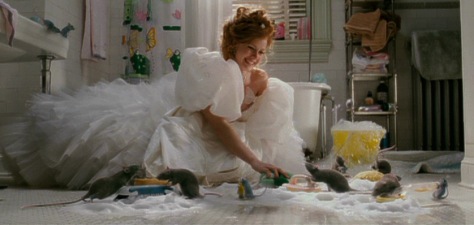Fairy tales aren’t just a great way to pass an evening in front of the fire, they’re also an excellent way to examine our culture. Looking at the ways we adapt and parody fairy tales can show us the ways our society is changing. The rise of bad-ass versions of Snow White and Hansel and Gretel speak to the ways modern pop culture wants to empower the powerless, while the popularity of Once Upon A Time allows adolescent and adult fairy tale fans to revel in romantic combinations that were impossible in the original versions.
The best thing about these stories, though, is the way they can provide modern artists with building blocks to create something new! I’ve collected a by-no-means-exhaustive list below that covers everything from a hitchhiking Little Red Riding Hood to a cyberpunk Cinderella!
Instructions—Neil Gaiman & Charles Vess
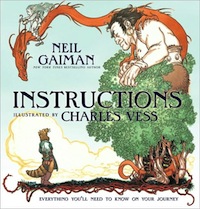
This is the only poem on the list. Neil Gaiman pours the essence of fairy tale into a cauldron, boils it down, and gives you a reduction that can be used no matter the tale in which you find yourself. Originally published in the collection Fragile Things, “Instructions” was also adapted into a lovely standalone book illustrated by Charles Vess. You can also watch Gaiman read it here.
The Red Shoes—produced/directed by Michael Powell and Emeric Pressburger
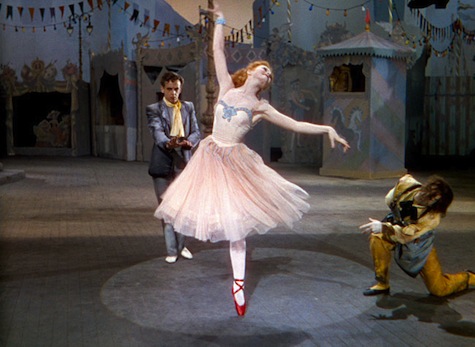
Lermontov: “Why do you want to dance?”
Vicky: “Why do you want to live?”
If I ever build a city, in the center of the city there will be an ornate shrine to Michael Powell and Emeric Pressburger. They are, as far as I’m concerned, the best filmmaking ever was. And the best movie they made was The Red Shoes, a retelling of the classic cautionary fairy tale about how children who enjoy dancing deserve to be mutilated and threatened with hell. Powell and Pressburger took a slightly different tack here: Victoria Page is a good dancer, and it becomes clear that dancing is more important to her than love, life, stability, or anything. She becomes obsessed with perfecting her art, and this isn’t necessarily seen as a bad thing. It’s not a safe thing, and sometimes it’s a tragic thing, but it’s the only choice she knows how to make.
The Lunar Chronicles—Marissa Meyer
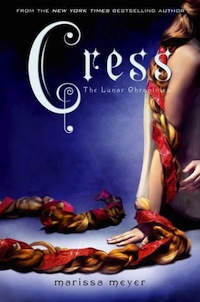
Meyer’s take on the fairy tales is to take the old stories and give them a sci-fi setting that verges on cyberpunk! Cinder is a cyborg mechanic. Cress (based on Rapunzel) has been trapped on a satellite since childhood with only her netscreens as company (which has made her an excellent hacker). And Scarlet (Red Riding Hood, of course) teams up with a streetfighter named Wolf to search for her missing grandmother, who is a fighter pilot. Did we mention that the Evil Queen draws her power from the moon?
Meyer takes these stories, which have been subjected to both the defanging of Disney and the rote “the Princess is a bad-ass warrior!” trend of the 2000s, and turns them into a multi-genre playground. And we haven’t even gotten to Snow white yet.
Splash—directed by Ron Howard
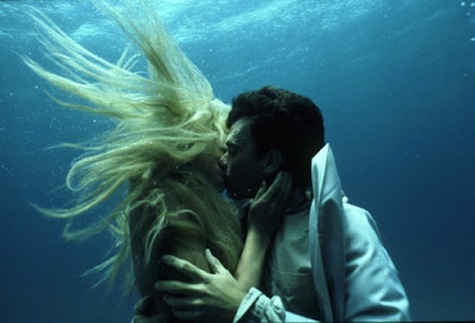
A sort of reverse Little Mermaid (the original script even includes a deal with a sea hag) that puts the onus of sacrifice on the human dude. A young mermaid and a little boy feel an instant connection when the boy decides to jump overboard during a family boat trip. After the boy grows up to be lovable everyman Tom Hanks, the adult mermaid, played by Darryl Hannah, comes to New York City looking for him. Rather than having to choose between having legs and having a voice, her legs simply transform into legs once she’s dry, and she learns English easily from watching TV.
The conflict of the story comes in her reluctance to tell Hanks the truth—can his winsome affability possibly extend to accepting that his girlfriend comes from under the sea? But then, since it’s the 80s, evil scientists show up to try to dissect her, and Tom Hanks is the one who has to decide between playing all day in the sun, and becoming part of her world.
The Inkheart Trilogy—Cornelia Funke
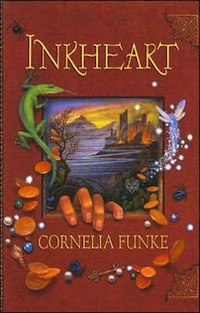
German author Cornelia Funke wrote this trilogy about people with ‘Silvertongues’—when they read books, the characters come to life. Meggie’s father has kept his gift hidden to protect his family, but one night he reads from a book called Inkheart, and their lives are changed forever. Meggie’s mother is trapped inside the book, while three magical characters spring to life in the human world. One of the characters, the evil Capricorn, absconds with the book, leaving a fire-eater named Dustfinger to work with Meggie and her father to retrieve it.
Much like The Neverending Story, which is a little further down the page, Funke deals with the essential structure of story, and how we use stories to give our lives meaning and purpose.
The Accidental Highwayman—Ben Tripp
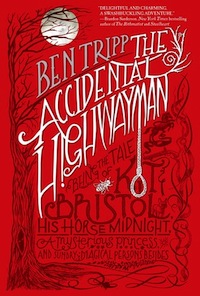 One dark night, Kit Bristol finds his employer bleeding from a mortal wound, dons the man’s riding cloak to seek help, and changes the course of his life forever. Kit discovers that his master is the notorious highwayman Whistling Jack, and now that everyone thinks he is his master, Kit is catapulted into a world of magic and wonders he thought was the stuff of fairy tales.
One dark night, Kit Bristol finds his employer bleeding from a mortal wound, dons the man’s riding cloak to seek help, and changes the course of his life forever. Kit discovers that his master is the notorious highwayman Whistling Jack, and now that everyone thinks he is his master, Kit is catapulted into a world of magic and wonders he thought was the stuff of fairy tales.
Bound by magical law to fulfill his master’s contract, Kit must rescue a princess from an arranged marriage, face off with goblins, and somehow avoid his own predicted fate, which involves a hangman’s noose…
Freeway—directed by Matthew Bright
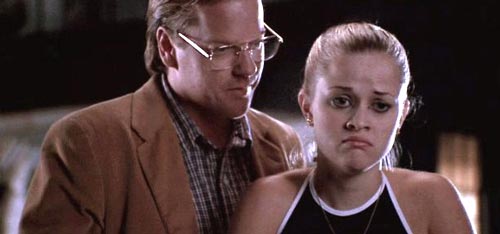
Better known as the last time Reese Witherspoon was an interesting actress. Bob Wolverton (played by Kiefer Sutherland, who, come to think of it, this was the last time he was interesting, too…) picks Witherspoon’s Vanessa up on the side of the road, offers to take her to grandma’s house, and even listens kindly as she tells him about her poverty-stricken, horribly abused childhood. Unfortunately, he then reveals himself as the “I-5 Killer.”
What could have been an exploitation-fest instead becomes a weirdly resonant examination of class and gender, and it’s not spoiling things too much to say that Vanessa proves to be a more formidable opponent than Wolverton expects. Plus, this movie was written and directed by Matthew Bright, the squawking chicken boy from Richard Elfman’s masterpiece, Forbidden Zone.
Dorothy Must Die—Danielle Page
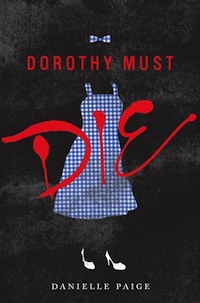
Oz sequels and re-imaginings are a rich vein for remixing. Geoff Ryman’s Was focuses on a young gay man who travels to Manhattan, Kansas, and reflects on the way the book and movie affected his life. His story is woven together with the (fictional) Dorothy Gael, as well as fictionalized versions of L. Frank Baum and Judy Garland. The success of Wicked helped turn Gregory McGuire’s skewed takes on stories into their own cottage industry.
Dorothy Must Die is a bit different—Dorothy, in this version, has become a terrible despot. Young Amy Gumm, a bullied fellow Kansan, is recruited by a coalition of witches to overthrow Dorothy and return peace and freedom to Oz.
The Spiderwick Chronicles—Tony DiTerlizzi and Holly Black
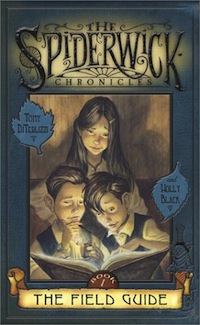
The Spiderwick Chronicles are a dark take on fairy stories. When twins jared and Simon and their elder sister Mallory move into the old Spiderwick estate, they naturally start exploring. What they don’t realize is that they’r disturbing a brownie nest. Over the next few years thy discover a whole world of brownies, phookas, trolls, and goblins, while trying to decipher (and sometimes destroy) their granduncles book, Arthur Spiderwick’s Field Guide to the Fantastical World Around You.
Should they do the responsible thing, and destroy the book before it cause more trouble, or should they continue their adventures? And is it possible that Arthur Spiderwick is living in the faerie kingdom after all these years?
The Neverending Story—Michael Ende
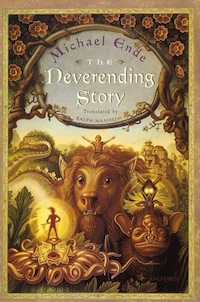
Michael Ende’s novel, not the extremely important slice of 80s fantasy that is Wolfgang Petersen’s movie. The original novel is much darker and twistier, partly because the only goddammit first film only covers about the first third of the novel. Book-Bastian, rather than being a shy, dreamy, bullied kid, is kind of a jerk, and begins abusing his power almost immediately after his magical arrival in Fantasika.
The structure of the book skewers the traditional heroic fairy tale. Rather than being a hero, Bastian creates ever-more-powerful beasts to fight in a misguided attempt to impress the Fantasikans, which goes about as well as you’d imagine. At one point the ailing Empress goes on a quest to rescue herself, there’s the coup attempt…and SPOILER ALERT: Bastian ultimately fails at his quest and has to be rescued by Atreyu.
Hansel and Gretel—directed by Tim Burton
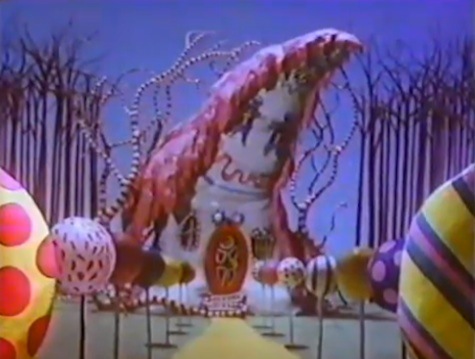
Back in the early 80s, Tim Burton was willing to throw a bunch of disparate cultural elements into a Cuisinart and produce something cool. As the original Frankenweenie turned out to be a surprisingly heartwarming mix of suburban life, Frankenstein, and heroic dog tale, so his Hansel and Gretel combines the unlikely ingredients of dark fairy tales, spousal abuse, and kung fu into an affirmation of familial love. Unseen for years, it seems to be back on Youtube, so go watch!
Brothers Grimm—directed by Terry Gilliam
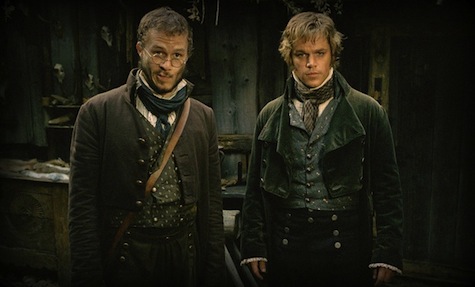
Not one of Terry Gilliam’s best, certainly, but, parts of this film are still fantastic, and the idea is perfect: the Brothers Grimm travel Europe conning people into believing in monsters, which they then handily “defeat” for a reasonable fee. Until, unfortunately for them, they wander into a Gilliam movie and all their nightmares turn out to be real. The film does a great job mashing up fairy tale tropes, with woodsmen turned into wolves, evil witch-queens seeking eternal youth, historical European armies clashing with monsters, and magic beans causing family tragedy, like they do. Plus, a young Cersei Lannister licks a toad to turn it into a magical compass—what more can you ask from a film?
Samurai Jack “Aku’s Fairy Tales”—directed by Genndy Tartakovsky
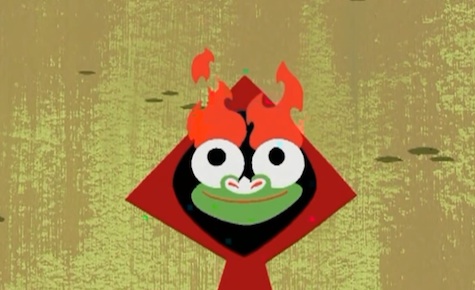
Aku, unusually for him, begins to worry about his low approval rating among the people he has crushed. So, rather than doing anything truly revolutionary, like not being evil, he instead tells stories that rebrand him as the good guy, and cast Jack as the villain. My personal favorite is his retelling of Little Red Riding Hood, which you can watch here.
Thorn Jack—Katherine Harbour
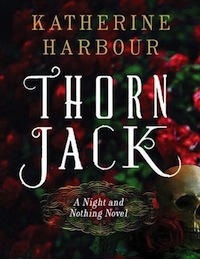
Finn and her father move to a pretty town in New York to escape the memories of Finn’s sister, Lily Rose, who has committed suicide. The more Finn learns of her new town, however, the more mystery and secret she finds, especially when she begins to investigate the powerful Fata family.
Will she discover things she’s not supposed to know? Is her fascination with Jack Fata becoming more than just idle interest? And was there more to Lily Rose’s death than Finn believed?
Ladyhawke—directed by Richard Donner
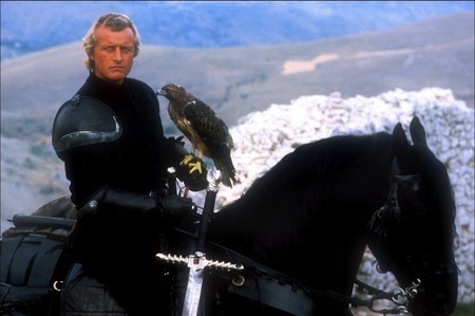
Ladyhawke takes the classic trope of “Hans my Hedgehog” or “The Enchanted Pig” and doubles it—both the knight and his lady fair are transformed into animals. The knight turns into a wolf as the sun sets, and as it rises, the lady transforms into a hawk. They’re condemned to this half-life by a jealous Bishop, who entered into a pact with the Devil to curse them. The fairy tale elements are combined with some straight-up, 1980s prog-rock-fueled sword-and-sorcery, and snarky commentary provided by their helper, a thief named Mouse, who spends most of the movie bitching at God for being so unhelpful.
While the terrible soundtrack may test your belief in a just universe (if you have one) Rutger Hauer and Michelle Pfeiffer are both amazing as the star-and-Devil-crossed lovers, and Matthew Borderick usually makes Mouse work better than he should.
Enchanted—directed by Kevin Lima
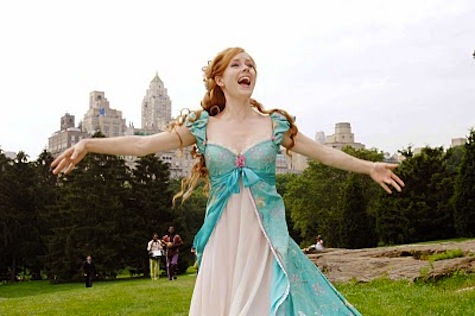 So most of these movies are dark, gritty, twisted, etc. But Enchanted is just frothy and fun. A typical princess gets zapped into our world, and tries to live her typical princess life here. The film, aimed at younger kids, is more of a gentle poke at fairy tale conventions then a full-scale dismantling. Giselle is sweet-natured and naiive, and gradually comes to terms with the idea that not only is her stepmother wicked, but that her love for a regular human might be True Loveier than her instant connection with a prince from fairy-land. It also did the subversion of True Love’s Kiss years before Maleficent, Frozen, or Neil Gaiman’s new take on Hanel and Gretel. Oh, and it also gave us the Happy Working Song!
So most of these movies are dark, gritty, twisted, etc. But Enchanted is just frothy and fun. A typical princess gets zapped into our world, and tries to live her typical princess life here. The film, aimed at younger kids, is more of a gentle poke at fairy tale conventions then a full-scale dismantling. Giselle is sweet-natured and naiive, and gradually comes to terms with the idea that not only is her stepmother wicked, but that her love for a regular human might be True Loveier than her instant connection with a prince from fairy-land. It also did the subversion of True Love’s Kiss years before Maleficent, Frozen, or Neil Gaiman’s new take on Hanel and Gretel. Oh, and it also gave us the Happy Working Song!
So, what have I missed? Steampunk Snow White? Gender-swapped Donkeyskin? Noh-drama-influenced Puss-in-Boots? Tell us in the comments!
While Leah Schnelbach loves all of these fairy tales, and definitely thinks it’s time for a gritty reboot of “Hans, My Hedgehog.” Follow her on Twitter!










